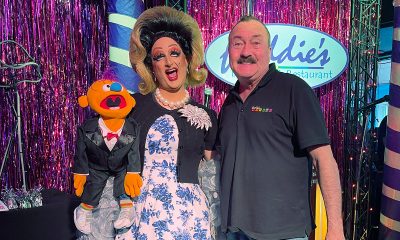Local
Cuccinelli denied sodomy ruling rehearing
Will Virginia Attorney General take case to Supreme Court?
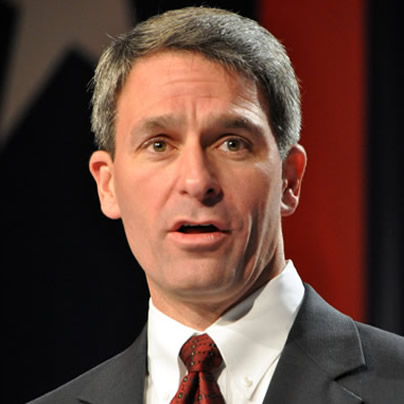
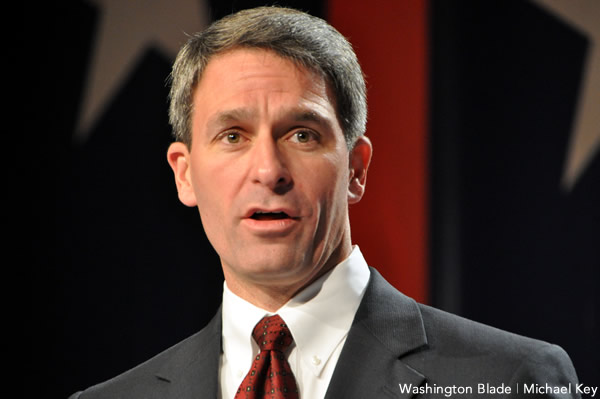
Virginia Attorney General Kenneth Cuccinelli hoped to challenge a ruling that overturned the state’s sodomy law. (Washington Blade file photo by Michael Key)
The Fourth Circuit U.S. Court of Appeals in Richmond issued an order on Monday denying a petition by Virginia Attorney General Ken Cuccinelli asking the full 15-judge court to reconsider a decision by a three-judge panel last month that overturned the state’s sodomy law.
In an action that surprised some court observers, the order says none of the court’s judges requested a poll among themselves to determine which, if any of them, favored Cuccinelli’s request for an en banc rehearing of the sodomy case by the court’s 15 active judges and one senior judge.
Under court rules, if no judge calls for a poll or vote on the issue, the petition for a rehearing is automatically denied in what, in effect, becomes a unanimous decision.
Among the judges that chose not to approve a rehearing was Judge Albert Diaz, who wrote the dissent in the three-judge panel’s 2-1 ruling declaring Virginia’s “Crimes Against Nature” statute unconstitutional. The statute classifies sodomy between consenting adults, gay or straight, as a crime.
“It’s a pretty resounding rejection,” said Claire Gastanaga, executive director of the ACLU of Virginia, which filed a friend of the court brief urging the three-judge panel to overturn the state sodomy law. “There really wasn’t any interest in doing this at all by anybody.”
Caroline Gibson, Cuccinelli’s deputy communications director, didn’t respond to a question from the Blade about whether Cuccinelli plans to petition the U.S. Supreme Court to take the case, which would be the last remaining step to challenge the appeals court ruling overturning the sodomy law.
“We would hope that they wouldn’t,” Gastanaga said. “We would hope that they would understand what they need to do is work to get this law off the books. But I wouldn’t be surprised if they filed a petition for cert.”
Gastanaga was referring to the process for taking a case before the Supreme Court through the filing of a petition for a Writ of Certiorari. At least four of the nine justices on the high court must approve certiorari or “cert” in order for the court to accept a case for consideration on the merits.
The March 12 ruling by the three-judge panel of the Fourth Circuit appeals court overturned a lower court decision upholding the conviction of a 47-year-old man charged in 2004 with soliciting a 17-year-old woman to engage in oral sex on grounds that the sodomy statute is unconstitutional. No sexual encounter took place, according to court records.
Cuccinelli’s office argued in its 21-page petition for a rehearing that the Supreme Court’s 2003 Lawrence v. Texas decision overturning state sodomy laws didn’t apply to cases involving minors. However, Fourth Circuit Court of Appeals Judge Robert King, who wrote the majority opinion, said the Lawrence decision rendered the Virginia sodomy statute “facially” or completely unconstitutional.
“As we stated last week, this case has nothing to do with sexual orientation or private sexual acts between consenting adults,” Gibson told the Blade in an email on Tuesday. “It’s about using current law to protect a 17-year-old girl from a 47-year-old sexual predator. The attorney general is committed to protecting Virginia’s children from predators who attempt to exploit them and rob them of their childhood.”
Gibson said Cuccinelli agreed with the dissenting judge that the defendant in the case wasn’t entitled to relief from the three-judge panel of the fourth circuit appeals court and the full court should have been given an opportunity to decide the matter.
Judge King stated in the majority opinion that other laws could be used to prosecute an adult for engaging in sex with a minor and that the state legislature would likely have authority under the Lawrence decision to pass a new law specifically outlawing sodomy between an adult and a minor.
Virginia State Sen. Adam Ebbin (D-Alexandria), who’s gay, has said he is considering introducing a bill next year to repeal the Crimes Against Nature law for consenting adults.
Virginia
Norfolk transgender resource center vandalized
Anti-trans graffiti spraypainted onto Southeastern Transgender Resource Center’s windows
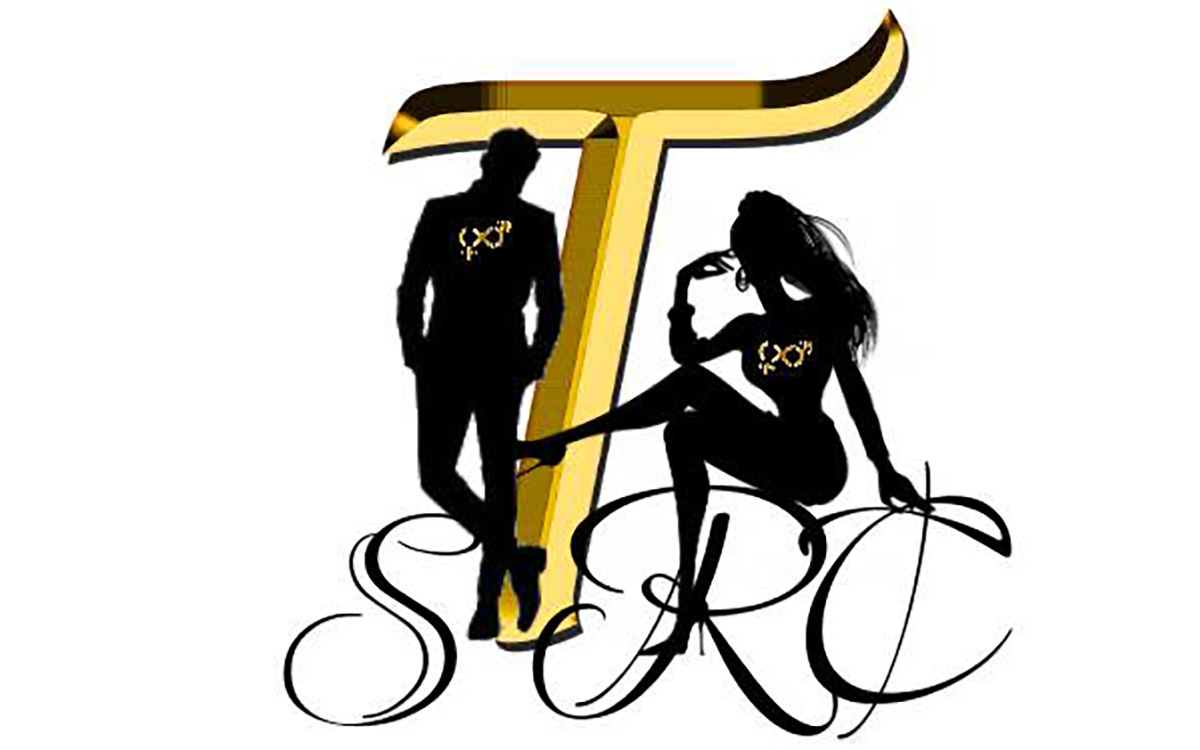
The Norfolk Police Department is investigating the vandalism of a transgender resource center’s building.
Tarena Williams, founder of the Southeastern Transgender Resource Center, told WAVY that someone spraypainted anti-trans graffiti on the windows of her organization’s offices on Sunday or Monday morning. Williams told the Hampton Roads television station that seeing the messages was like “walking into hell.”
“I opened up STRC, even the Lamina House,” she told WAVY. “I opened up that to get away from those types of words. This is a place you can come to get away from that, but to see that sprayed over the window. It’s kind of like you are walking into hell. … To be honest, I was like in shock.”
Authorities are investigating the vandalism.
West Virginia
Appeals court strikes down W.Va. transgender athlete ban
Ruling finds law violates students’ constitutional rights, Title IX
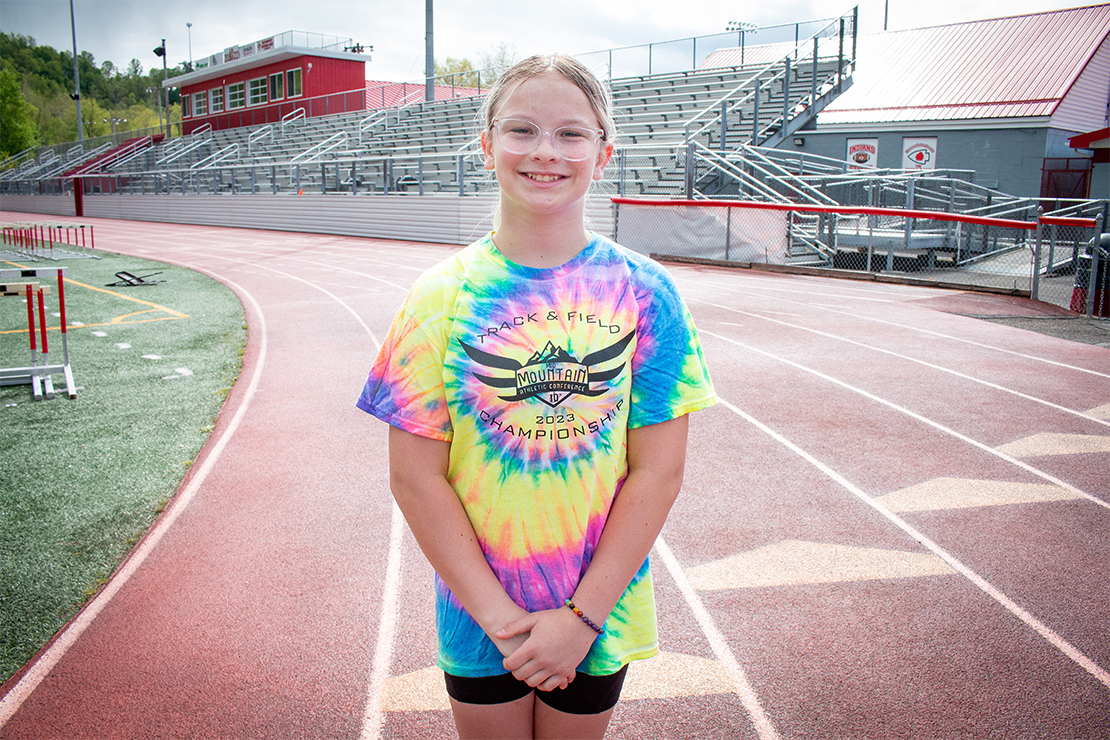
BY LORI KERSEY | The 4th U.S. Circuit Court of Appeals has struck down West Virginia’s ban on transgender athletes, finding the law violates trans students’ rights under the Equal Protection Clause of the constitution and Title IX, a federal civil rights law prohibiting discrimination based on sex in education programs.
The case, B.P.J. vs. the West Virginia Board of Education, was filed in May 2021 on behalf of Becky Pepper-Jackson, a 13-year-old trans middle school student and track athlete who would be barred from participating if the ban is upheld. Pepper-Jackson is represented by the American Civil Liberties Union, the American Civil Liberties Union of West Virginia and Lambda Legal.
In April 2021, West Virginia Gov. Jim Justice signed into law a bill prohibiting trans women and girls in the state from participating in sports that align with their gender identity. The U.S. Court of Appeals in February 2023 blocked the state from removing Pepper-Jackson from her school’s track and field team as legal advocates appealed a lower court’s ruling upholding the ban.
In Tuesday’s ruling, Judge Toby Heytens wrote that offering Pepper-Jackson the “choice” between not participating in sports and participating only on boys teams is not a real choice.
“The defendants cannot expect that B.P.J. will countermand her social transition, her medical treatment, and all the work she has done with her schools, teachers and coaches for nearly half her life by introducing herself to teammates, coaches and even opponents as a boy,” the judge wrote.
“By participating on boys teams, B.P.J. would be sharing the field with boys who are larger, stronger, and faster than her because of the elevated levels of circulating testosterone she lacks,” he wrote. “The Act thus exposes B.P.J. to the very harms Title IX is meant to prevent by effectively ‘exclud[ing]’ her from ‘participation in’ all non-coed sports entirely.”
In a statement Tuesday, Joshua Block, senior staff attorney for the ACLU’s LGBTQ and HIV Project, called the court’s ruling “a tremendous victory for our client, transgender West Virginians and the freedom of all youth to play as who they are.”
“It also continues a string of federal courts ruling against bans on the participation of transgender athletes and in favor of their equal participation as the gender they know themselves to be,” Block wrote. “This case is fundamentally about the equality of transgender youth in our schools and our communities and we’re thankful the 4th Circuit agreed.”
“We hope today’s ruling sends a message of hope to the trans youth of West Virginia,” Aubrey Sparks, legal director of the ACLU of West Virginia, said in the statement. “And a message of warning to politicians who continue to dehumanize this vulnerable population.”
West Virginia is one of 21 states that have banned trans student-athletes over the last three years, according to the ACLU.
In a statement Tuesday, West Virginia Attorney General Patrick Morrisey vowed to defend the ban and said he is “deeply disappointed” in the decision.
“The Save Women’s Sports Act is ‘constitutionally permissible’ and the law complies with Title IX,” Morrisey said. “I will keep fighting to safeguard Title IX. We must keep working to protect women’s sports so that women’s safety is secured and girls have a truly fair playing field. We know the law is correct and will use every available tool to defend it.”
******************************************************************************************

Lori Kersey is a reporter with a decade of experience reporting in West Virginia. She covers state government for West Virginia Watch.
******************************************************************************************
The preceding article was previously published by the West Virginia Watch and is republished with permission.
Nonprofit, nonpartisan, independent journalism not hidden behind a paywall. Mountaineers are always free, and so is West Virginia Watch.
West Virginia Watch is part of States Newsroom, the nation’s largest state-focused nonprofit news organization.
District of Columbia
Reenactment of first gay rights picket at White House set for April 17
Event marks 59th anniversary of historic push for gay rights in nation’s capital
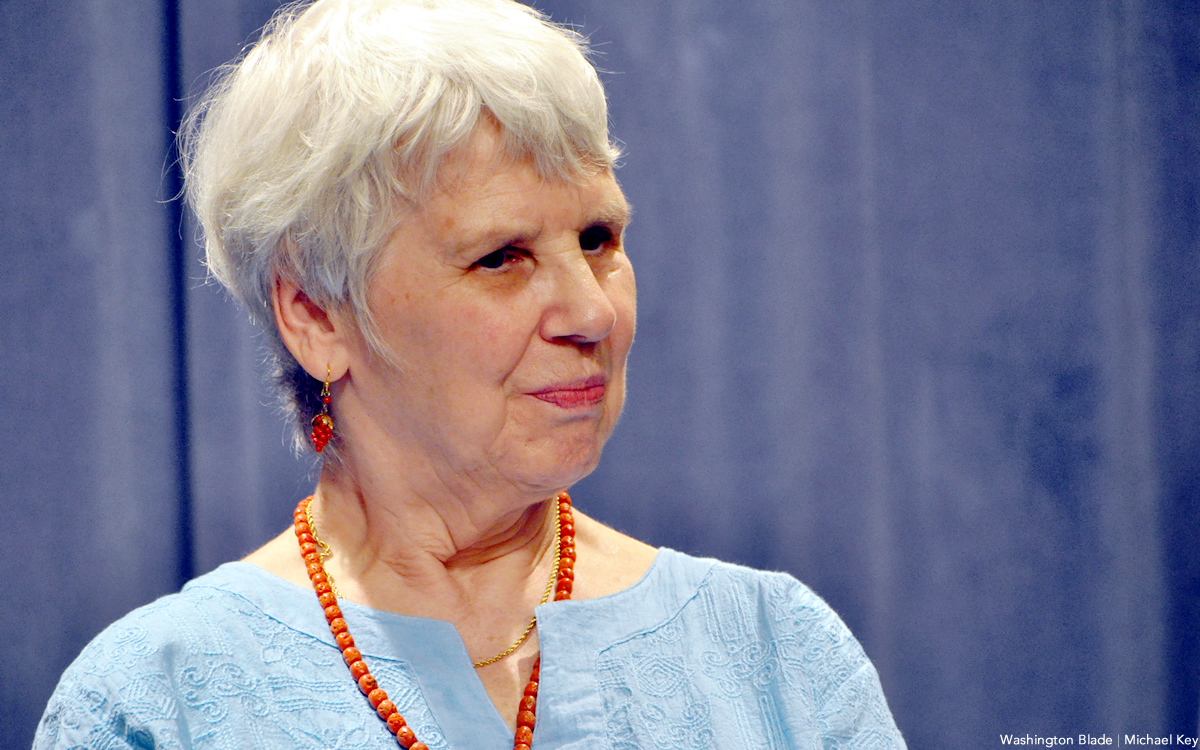
D.C.’s Rainbow History Project announced it will hold a reenactment on Wednesday, April 17, of the historic first protest for gay rights in the form of a picket line in front of the White House that took place on that same day in 1965.
In a statement released last week, Rainbow History Project says the reenactment will mark the 59th anniversary of an event that is credited with bringing attention for the first time to the federal government’s longstanding discrimination against a minority group referred to then as homosexuals or gays and lesbians.
The statement notes that the 1965 event was organized by the Mattachine Society of Washington, D.C., the first politically active LGBT organization in the nation’s capital founded by local gay rights pioneer Frank Kameny.
“The picket took place on the White House sidewalk, Lafayette Park, 1600 Pennsylvania Ave., on April 17, 1965,” the statement says. “For exactly one hour, from 4:20 p.m. to 5:20 p.m., members of the Mattachine Society of Washington walked in a circle, non-stop, in silence, carrying posters of their demands,” the statement continues.
“The White House picket is the origin story for public demonstrations for gay rights in the U.S., and the origin story for Pride Marches and the annual LGBTQ Pride celebrations which occur across the globe,” according to the statement.
It says those picketing in the April 1965 event, which included Kameny and longtime local D.C.-area lesbian activist Lilli Vincenz, both of whom held doctorate degrees, called on the government to adopt the Mattachine Society of Washington’s four major demands: an end to the exclusion of homosexuals from federal government employment; an end to the ban on gays and lesbians from serving in the U.S. military; an end to the “blanket denial” of security clearances for gay people; and an end to the “government refusal to meet with the LGBTQ community.’
Among those who chose not to respond to the request for a meeting was President Lyndon B. Johnson, who occupied the White House at the time of the 1965 picketing.
Vincent Slatt, the Rainbow History Project’s director of archiving and one of the lead organizers of the April 17 reenactment event, said the event is aimed, among other things, at drawing attention to how far the LGBTQ community has come since 1965. He said the event is not in any way a protest of the administration of President Joe Biden and Vice President Kamala Harris, who Slatt called staunch supporters of the LGBTQ community.
“We are just reenacting this historical event and pointing out how far we’ve come,” Slatt told the Washington Blade. “If you think about what it means in 1965 when these people were protesting and LBJ would not even respond to them. And now, we are at a place where Vice President Harris speaks on a stage at Capital Pride.”
The Rainbow History Project statement notes that the reenactment event will also be held in honor of Kameny, who died in 2011, and Vincenz, who passed away in 2023, both of whom participated in a similar reenactment event in 2008.
Among those who will be participating in this week’s reenactment on April 17 will be longtime local LGBTQ rights activist Paul Kuntzler, who is the only known surviving person who was among the White House picketers at the April 1965 event. Kuntzler will be carrying a replica of his own picket sign he held at the 1965 event, the statement says.
It says Rainbow History Project volunteers will also carry replicas of the original protest signs and hand out literature explaining the picket to passersby and tourists.
Similar to the 1965 event, the reenactment picketing at the White House will begin on April 17 at about 4:15 p.m., according to Slatt of the Rainbow History Project.
-

 Africa3 days ago
Africa3 days agoCongolese lawmaker introduces anti-homosexuality bill
-

 Colorado5 days ago
Colorado5 days agoFive transgender, nonbinary ICE detainees allege mistreatment at Colo. detention center
-

 World3 days ago
World3 days agoOut in the World: LGBTQ news from Europe and Asia
-

 Real Estate5 days ago
Real Estate5 days agoBoosting your rental property’s curb appeal





